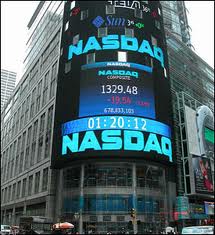
Investing in the stock market is an endeavor influenced by numerous factors, including the global economic landscape. The world markets play a significant role in shaping the performance of the US stock market. Understanding how these international markets affect the American economy is crucial for investors and traders seeking to navigate the complexities of the financial landscape. In this article, we will explore the relationship between the world markets and the US stock market, highlighting the key factors and mechanisms at play.
How the World Markets Affect the US Stock Market
The interconnectedness of global financial markets means that events occurring in one part of the world can have ripple effects on stock markets around the globe. The US stock market, being one of the largest and most influential markets, is particularly susceptible to the influence of international developments. Here are some key ways in which the world markets affect the US stock market:
Economic Indicators and Investor Sentiment
The performance of international economies has a direct impact on investor sentiment and confidence in the US stock market. Economic indicators, such as GDP growth, inflation rates, and unemployment figures, provide insights into the overall health of a country’s economy. Positive economic indicators in major global markets can boost investor confidence, leading to increased investment in the US stock market. Conversely, negative economic news can spark concerns and trigger sell-offs, leading to a decline in US stock prices.
Currency Exchange Rates
Currency exchange rates are another crucial factor in understanding how the world markets affect the US stock market. Fluctuations in exchange rates can impact the competitiveness of multinational corporations, which make up a significant portion of the US stock market. When the US dollar strengthens against other currencies, it can negatively affect the earnings of US companies with significant international operations, leading to a decline in their stock prices. On the other hand, a weaker US dollar can benefit exporters and boost the performance of the US stock market.
Trade Relations and Tariffs
Trade relations between countries and the imposition of tariffs can have a substantial impact on the US stock market. Trade tensions and the introduction of tariffs can disrupt global supply chains, affecting the profitability and outlook of companies involved in international trade. Investors closely monitor trade negotiations and the potential for trade wars, as they can significantly impact stock prices. Positive developments in trade relations can lead to stock market rallies, while escalating trade disputes can lead to increased volatility and market downturns.
Commodity Prices
Commodity prices, such as oil, gold, and agricultural products, play a crucial role in the global economy. Fluctuations in commodity prices can impact the profitability of companies operating in related industries, such as energy and agriculture. For example, rising oil prices can increase production costs for companies reliant on transportation, leading to lower profit margins and potentially lower stock prices. Similarly, falling commodity prices can benefit industries that rely on raw materials, potentially boosting stock prices.
Financial Crises and Global Events
Financial crises and significant global events can have a profound impact on the US stock market. The 2008 financial crisis, triggered by the collapse of Lehman Brothers, had far-reaching consequences that reverberated throughout the global financial system. Similarly, geopolitical events, such as political unrest, wars, or natural disasters, can create uncertainty in the markets, leading to increased volatility and potential stock market downturns. Investors closely monitor these events and adjust their investment strategies accordingly.
Interest Rates and Central Bank Policies
Interest rates set by central banks have a significant impact on the US stock market. When interest rates are low, borrowing becomes cheaper, stimulating economic activity and potentially boosting stock prices. Conversely, when interest rates rise, borrowing becomes more expensive, which can slow down economic growth and put downward pressure on stock prices. Changes in central bank policies, such as quantitative easing or tightening, can have profound effects on the US stock market and its performance.
FAQs (Frequently Asked Questions)
Q: How quickly can global events impact the US stock market?
Global events can have an immediate impact on the US stock market, especially in today’s interconnected world. With the advent of technology and instant communication, news travels fast, and investors can react swiftly to significant developments. It’s not uncommon to see stock prices reacting within minutes or even seconds to breaking news, highlighting the importance of staying informed and being prepared to act quickly.
Q: What are some strategies investors can employ to navigate the impact of world markets on the US stock market?
Investors can employ various strategies to navigate the impact of world markets on the US stock market. Diversification is key, as it allows investors to spread their risk across different markets and sectors. Additionally, staying informed about global economic trends, geopolitical developments, and central bank policies can help investors make informed decisions. It’s also important to have a long-term perspective and avoid making hasty investment decisions based on short-term market volatility.
Q: Are there any specific sectors that are more vulnerable to the influence of world markets?
Certain sectors are more vulnerable to the influence of world markets than others. Industries heavily reliant on international trade, such as technology, automotive, and consumer goods, are more susceptible to fluctuations in global markets and trade tensions. Additionally, companies involved in commodities, energy, and financial services can be significantly impacted by changes in commodity prices, currency exchange rates, and global financial stability.
Q: How do interest rates in other countries affect the US stock market?
Interest rates in other countries can indirectly impact the US stock market through various channels. When interest rates are low in other countries, international investors may seek higher returns by investing in the US stock market, driving up demand and potentially boosting stock prices. Conversely, when interest rates are high in other countries, investors may withdraw capital from the US market, putting downward pressure on stock prices. Interest rate differentials can influence currency exchange rates, further impacting the performance of the US stock market.
Q: Can the US stock market influence world markets in return?
Yes, the US stock market can also influence world markets. As one of the largest and most influential stock markets globally, the performance of the US stock market can have ripple effects on other markets. When the US stock market experiences significant gains or losses, it can impact investor sentiment and market confidence worldwide. Additionally, the US stock market serves as a benchmark for many international investors and funds, leading to increased correlations and interdependencies between markets.
Q: What role do financial institutions play in the relationship between world markets and the US stock market?
Financial institutions, such as banks, investment firms, and hedge funds, play a vital role in the relationship between world markets and the US stock market. These institutions act as intermediaries, facilitating the flow of capital between markets and providing liquidity to investors. They also conduct extensive research and analysis, providing valuable insights into global economic trends and market dynamics. The actions and decisions of financial institutions can significantly impact stock prices and market sentiment.
Conclusion
The world markets exert a powerful influence on the US stock market, shaping its performance and determining the fortunes of investors. Understanding the interconnectedness of global financial markets is crucial for navigating the complexities of investing in stocks. By monitoring economic indicators, exchange rates, trade relations, commodity prices, global events, and central bank policies, investors can make informed decisions and position themselves for success. The dynamic relationship between the world markets and the US stock market underscores the need for adaptability, diversification, and staying abreast of global developments.
Are you sitting at the kitchen table, enjoying your coffee before heading out to work and listening to the news? The news could be on pretty early in the morning, well before the stock market even opens in the US, but they are predicting a drop or a climb in stocks later that day. How do they even know what the stocks will do, the markets don’t have a crystal ball attached to them!
Fortunately, or unfortunately, depending on how you look at it, the world has become a global marketplace. With the global outlook on economies and markets, things that happen in another country can affect how the US stock market responds.
As with any type of venture, you don’t want to be the last one in or the last one out necessarily. If you were the last one in line for food at the family picnic, the pickings might be slim. The same goes if you were the last investor to get out of a stock that was dropping in price. The longer you wait to sell on a falling stock, the lower your price will be. Unless you are going to be able to hold on to that stock for years or months as it recovers, you will have just lost out on a bunch of money. No one wants to be last in that situation.
World markets have the ability to cause the US market to raise or lower because we have money tied in to many of their companies.

Certain events not related to the financial markets may also cause a sharp decline or even a rise in stocks.
For example, an accident happens in Europe with an American company. The Europeans who had invested in that company will be first in line to trade the stock as soon as the market opens the next day, simply because they suspect the US might pull out of their country. It can be a vicious cycle of pulling out to protect from losing in case someone else pulls out ahead of you.
World disasters also hurt the market, simply because people pull out their money to spend it elsewhere or out of uncertainty.
The stock market tanked after 9/11, simply because people didn’t know what the future was going to bring and they didn’t want to risk leaving their money in stocks if something else worse happened. Once people all over the world saw the response, they had faith in the market and put their money back in stocks and it righted itself.




